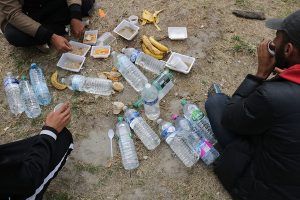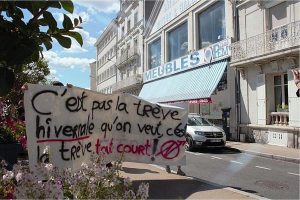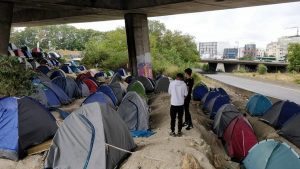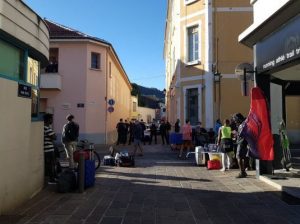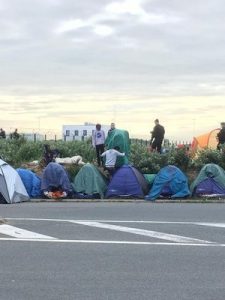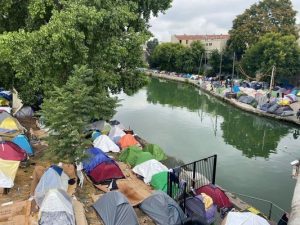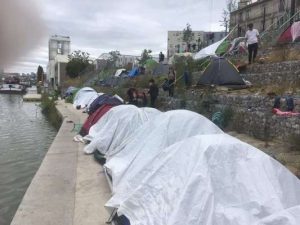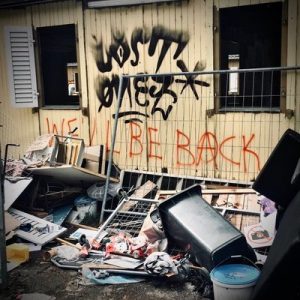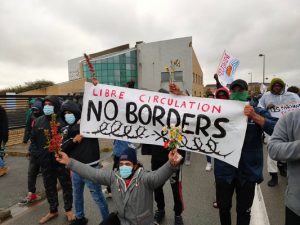 On Saturday, September 26, 2020, more than 400 people walk in the rain for freedom and human dignity.
On Saturday, September 26, 2020, more than 400 people walk in the rain for freedom and human dignity.
Calaisians, activists, volunteers and migrants found themselves in the pouring rain and set off in a demonstration from the camp next to the hospital in Calais. In spite of the wind and rain, the migrants join the parade by dancing to the sound of drums, leading the march and parading with joy and determination in the rain.
At the arrival at the Place de Norvège, a few words from supporters and migrants alternate with music and hip-hop improvisation in all languages. In spite of the cold, it is a moment of euphoria and unity between people who don’t have the opportunity to mix in the city otherwise.
At the microphone, migrants testify to their fatigue and exasperation in the face of daily harassment by the police who evict, destroy tents and confiscate their materials, calling for them to be treated as human beings and not as animals. [Read More]
